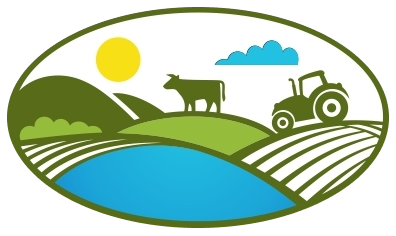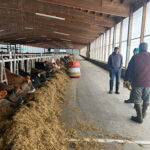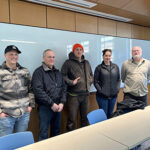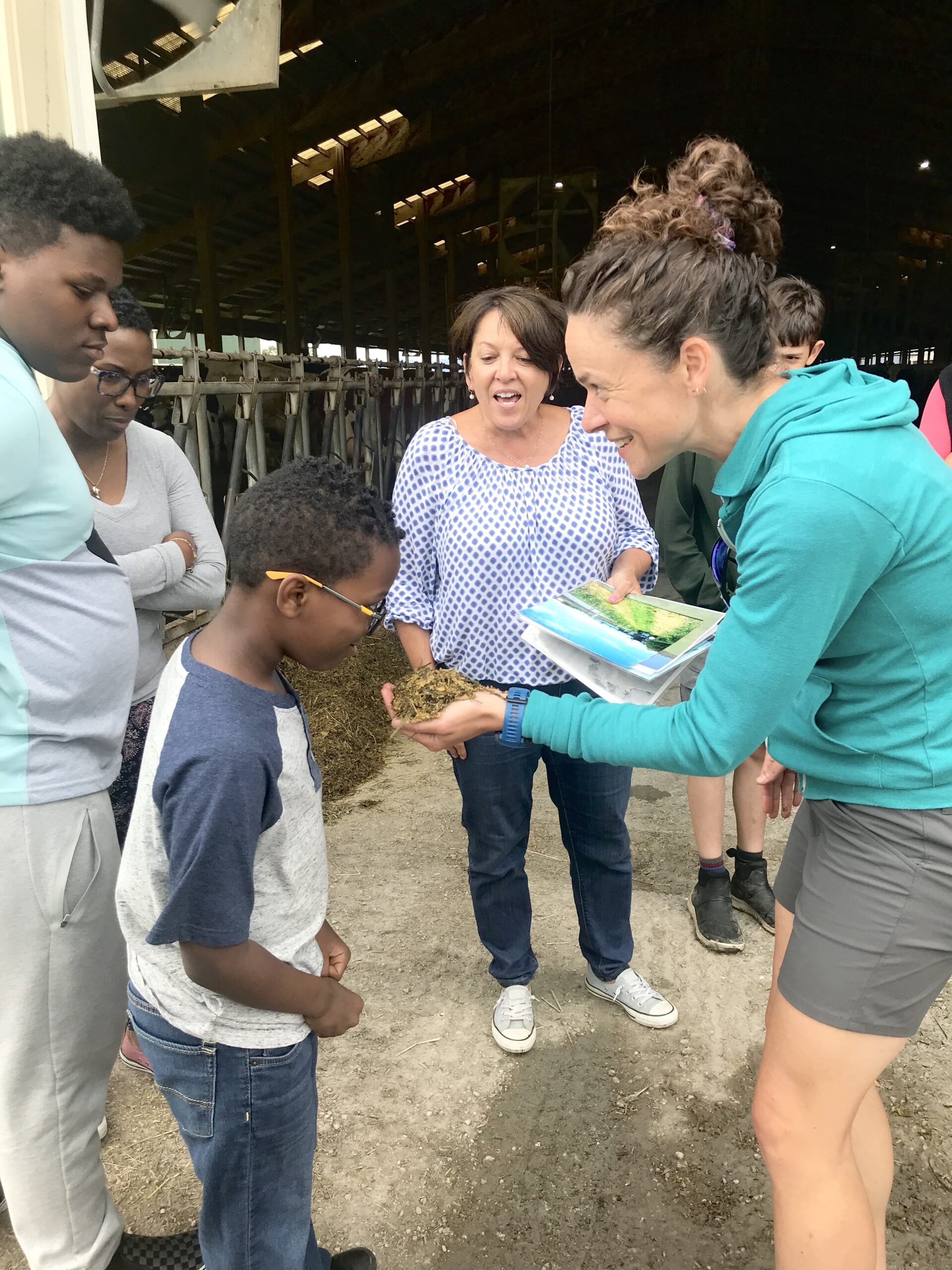
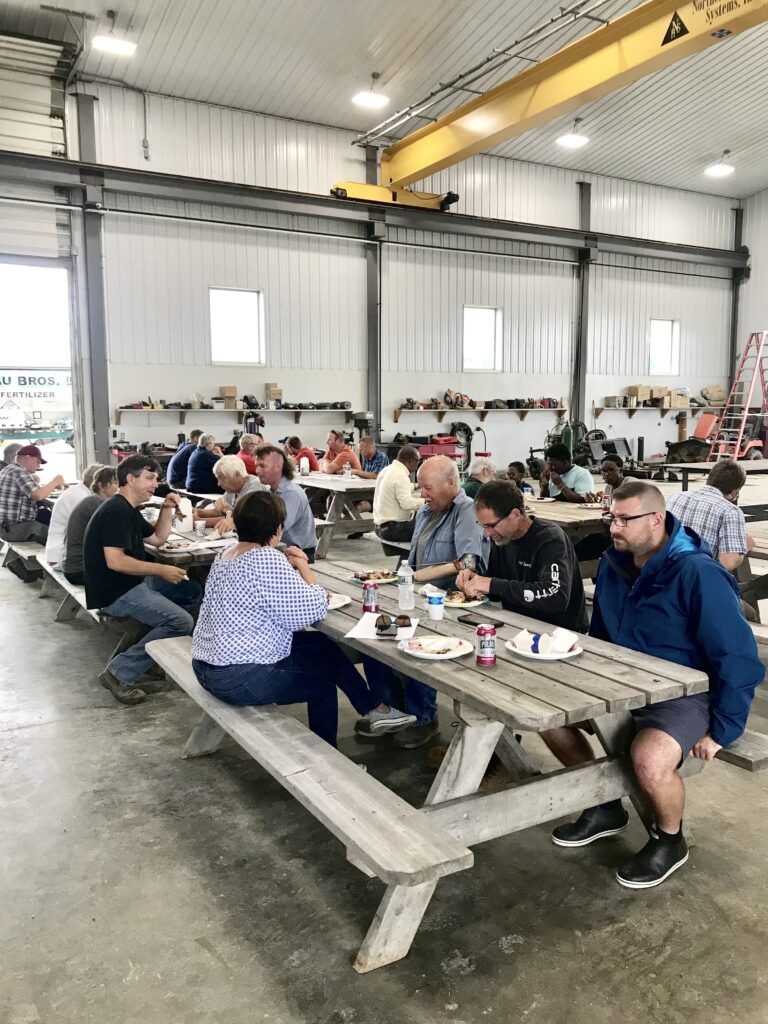
For many folks, this summer is a time of long-awaited reunions–and the Champlain Valley Farmer Coalition is no exception! On Wednesday, July 7, we welcomed our Board of Directors and members to an in-person meeting at Blue Spruce Farm in Bridport for the first time since March 2020. It was an opportunity to reconnect with old friends, meet some new ones, hear about exciting research projects in the works, and enjoy delicious barbecued chicken prepared by Ernie Audet.
Meet Dr. Fitzroy “Roy” Beckford, Associate Dean and Director of UVM Extension
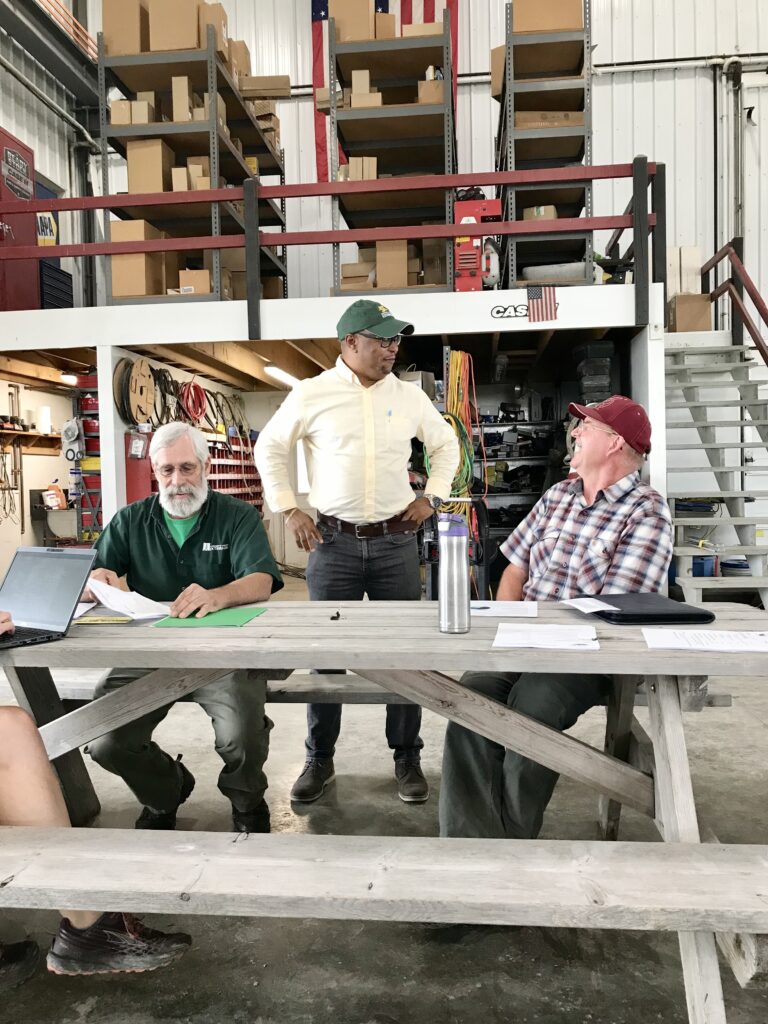
We were thrilled to have Dr. Roy Beckford, the new Associate Dean and Director of UVM Extension, and his lovely family join our meeting. His enthusiasm for Vermont agriculture and sense of humor seem boundless. Dr. Beckford’s vision for the future of Extension is ambitious: “Extension has the greatest potential for change because we are a change agency,” he said, adding that his primary goal as director is to reconnect UVM Extension with the communities it serves. He encouraged our members, “If you see me not doing that, call me!”
Dairy Net Zero & Conservation Effects Assessment Project Updates
Dr. Joshua Faulkner, UVM Extension’s Farming & Climate Change Coordinator, joined us to share exciting details about a couple of research projects he is engaged in.
First, a team of University of Vermont researchers, led by Dr. Faulkner, are collaborating on a major six-year project to study the impact of soil health management strategies, including cover cropping, conservation tillage, manure injection, and more. The findings of their research, which they are conducting at Blue Spruce Farm, will have implications for protecting water quality and addressing climate change.
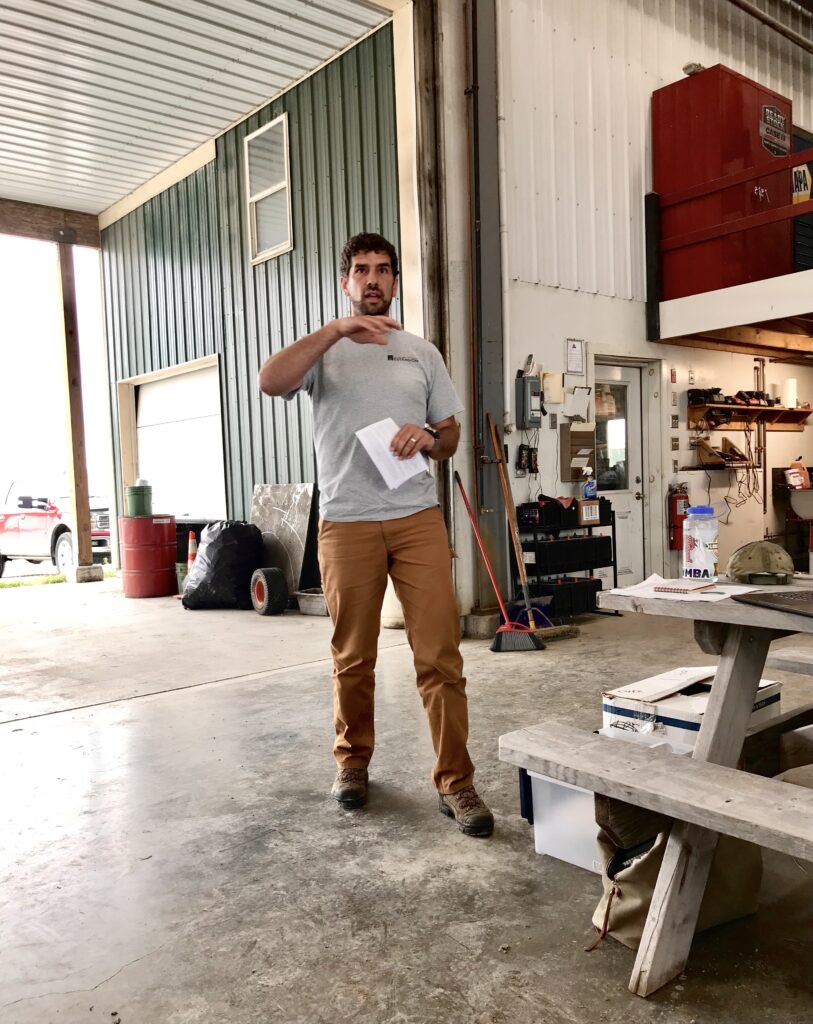
Their research is part of a national effort to quantify the impact of agricultural practices and evaluate the potential for the U.S. dairy industry to reach net zero environmental goals by 2050. Dr. Faulkner explained that Vermont is an optimal place to conduct such research because our state “is ahead of things in terms of policy and on the ground efforts.” At Blue Spruce Farm, in particular, researchers have the opportunity to examine greenhouse gas emissions, soil health, and water quality in a single field, comparing the benefits and impacts of older agricultural practices with newer ones.
Dr. Faulkner also talked about the Conservation Effects Assessment Project (CEAP) to measure the collective impact of farmers’ efforts to protect water quality. He has established monitoring stations at Dead Creek and Little Otter Creek to take water samples during times of elevated flow. The samples are then analyzed in a lab to look for evidence of phosphorus and nitrogen run-off. Over the ten years of the NRCS-funded assessment, Dr. Faulkner hopes to see the amount of phosphorus and nitrogen decrease as farmers’ adoption of innovative agricultural practices increases.
Blue Spruce Farm Tour
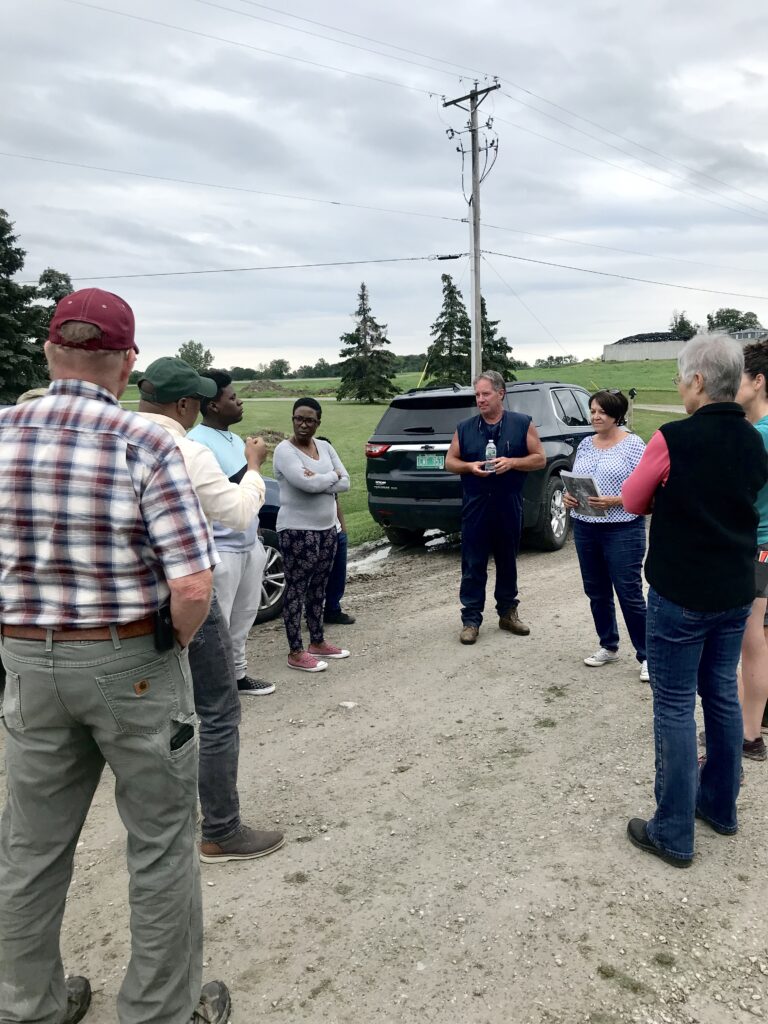
Following our meeting, Marie and Eugene Audet brought Dr. Beckford and his family on a tour of their 1,500 head dairy farm. Founded in 1958 by Norman and Mary-Rose Audet, Blue Spruce has experienced a lot of change since its days of tie-stall barns and a miniature workforce consisting of Eugene and his four younger siblings.
Marie and Eugene shared how the second generation of the farm family has worked hard to prioritize cow comfort and health, by building spacious barns equipped with thermostat-controlled fans and walls.
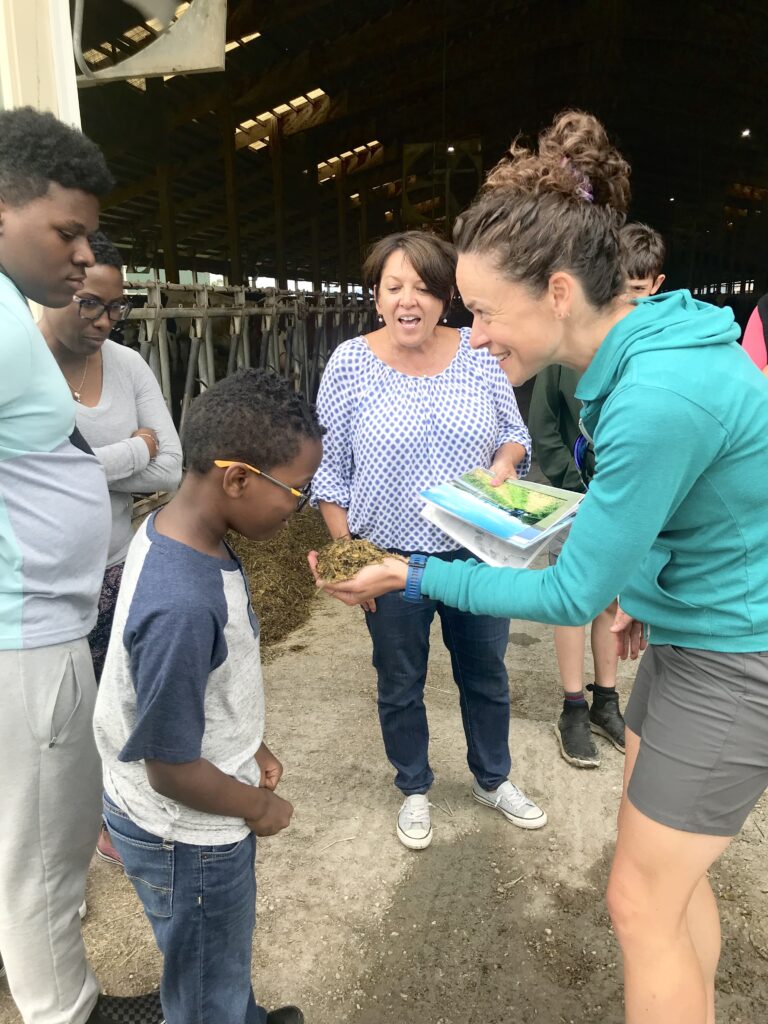
The Audet Family has also prioritized environmental and economic sustainability. Not only have they implemented innovative agricultural practices, including cover cropping, no-till corn planting, and manure injection, they also collect all of their cows’ manure in an anaerobic digester. Methane gas from the digester is used to generate electricity, while the liquid manure is used as fertilizer and the solid remnants are used as clean and cushy cow bedding. Blue Spruce recently installed a phosphorus recovery system to capture and separate phosphorus from recycled manure wastewater.
